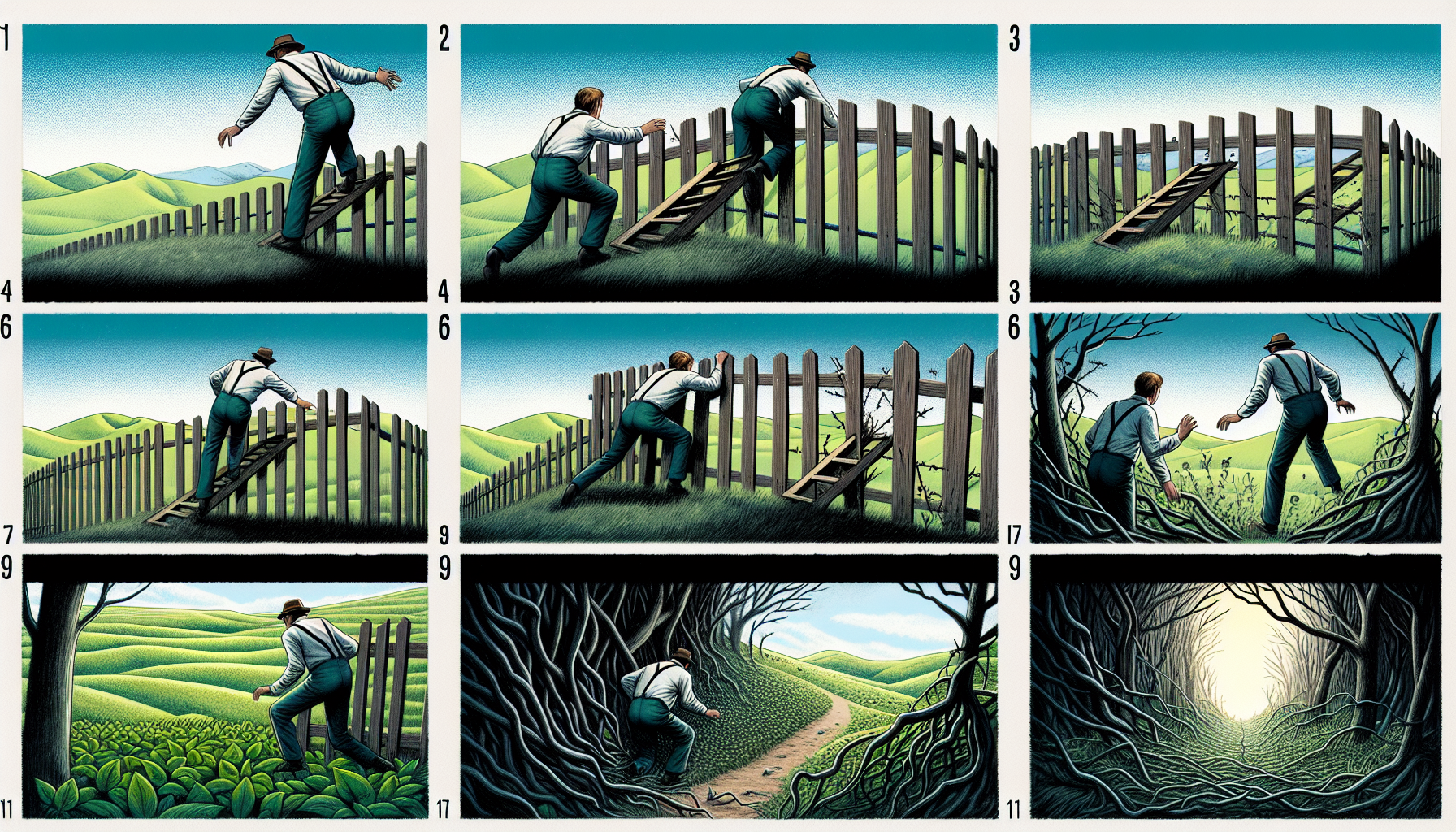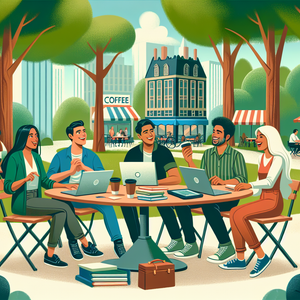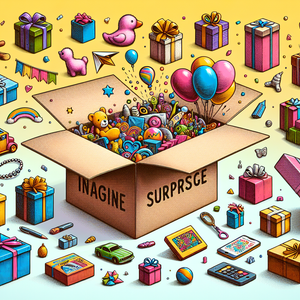Building a Culture of Collaboration at Tilt-Collective

At the heart of Tilt-Collective’s collaborative culture is the belief that diverse perspectives lead to better problem-solving and creativity. The company actively encourages an inclusive atmosphere where every voice is valued. From the onset of employment, new hires participate in orientation sessions that emphasize the importance of collaboration. These sessions include interactive workshops that not only introduce employees to company values but also allow them to engage in team-building exercises that promote trust and camaraderie. The commitment to inclusion is particularly notable in how it integrates various career paths within the organization. Tilt-Collective offers a range of roles spanning creative, technical, and management positions. This diversity in career paths ensures that employees from various disciplines can contribute their unique insights, fostering an environment rich in collaboration.
Team-Building Initiatives
Tilt-Collective invests in various team-building initiatives designed to strengthen relationships and improve teamwork. Regular retreats, both virtual and in-person, are organized to allow employees from different departments to work together on challenges outside their usual scope. For example, a recent retreat involved a “hackathon” where teams brainstormed innovative solutions for community engagement projects. Such initiatives not only foster collaboration but also create lasting bonds among employees, enhancing their ability to work together on future projects. Moreover, the company encourages informal gatherings and social events that allow employees to connect on a personal level. These interactions often lead to stronger professional relationships, making it easier for teams to collaborate effectively on work-related projects.
Effective Communication Strategies
Communication is pivotal in cultivating a collaborative environment. Tilt-Collective employs a range of communication tools that facilitate open dialogue among employees. Platforms like Slack and Microsoft Teams are utilized to encourage informal interactions and real-time collaboration. Regular check-ins and team meetings are structured to promote transparency, where team members share updates, challenges, and successes. This open communication policy ensures that everyone is on the same page, fostering a sense of collective ownership over projects. Additionally, Tilt-Collective implements feedback loops where employees can provide input on processes and decision-making. This practice not only enhances communication but also empowers employees, reinforcing the idea that their contributions are valued and impactful.
Cross-Departmental Collaboration
Tilt-Collective embraces cross-departmental collaboration as a means of harnessing diverse expertise. Special projects often involve teams from different areas of the organization, allowing employees to learn from each other and share their unique skills. For instance, when developing a new product, marketing professionals, designers, and engineers come together to brainstorm ideas, ensuring that every aspect of the product is thoughtfully considered. This collaborative approach not only leads to better outcomes but also enhances employee satisfaction as individuals feel their contributions are meaningful. The company also encourages job shadowing and mentorship programs, where employees can gain insights into different functions within the organization. This exposure helps break down silos and promotes a holistic understanding of the company’s operations, further enhancing collaboration.
Impact on Project Outcomes and Employee Satisfaction
The emphasis on collaboration at Tilt-Collective has tangible effects on project outcomes. Case studies reveal that projects developed through collaborative efforts often exceed client expectations, showcasing creativity and innovation that may not have emerged in siloed environments. For instance, a recent project involving a public service campaign saw teams from design, research, and client relations work closely, resulting in a campaign that not only met the client’s goals but also received accolades from industry peers. Moreover, employee satisfaction surveys consistently indicate that team members feel more engaged and fulfilled when they work collaboratively. This sense of belonging and shared purpose translates to lower turnover rates and a more positive workplace culture. Employees often report higher levels of job satisfaction when they can contribute to projects that align with their skills and interests, further emphasizing the importance of a collaborative culture.
Building a culture of collaboration is a strategic priority for Tilt-Collective, and the benefits are clear. By fostering an environment where diverse voices are heard and teamwork is celebrated, the company not only enhances its project outcomes but also cultivates a loyal and satisfied workforce. As organizations continue to navigate the complexities of modern business, the practices adopted by Tilt-Collective serve as a valuable blueprint for cultivating collaboration and driving success. In a world where collaboration is key, Tilt-Collective stands as a testament to the power of teamwork in achieving remarkable results. The organization's focus on inclusive culture, effective communication, and cross-departmental collaboration not only showcases its commitment to excellence but also positions it as a leader in innovation and employee satisfaction. As Tilt-Collective continues to grow, its collaborative culture will undoubtedly remain a cornerstone of its success, inspiring other organizations to follow suit.
Collaboration Specialist
Consulting firms, corporate training agencies, and large organizations focused on employee development.
Responsibilities
Design and implement team-building initiatives to enhance collaboration across departments.
Facilitate workshops and training sessions to promote effective communication and teamwork skills.
Analyze team dynamics and provide recommendations for improvement based on feedback and assessments.
Required Skills
Strong understanding of group dynamics and conflict resolution strategies.
Excellent communication and presentation skills, with experience in leading workshops.
Proficiency in collaboration tools like Slack and Microsoft Teams.
Product Development Manager
Tech companies, consumer goods manufacturers, and startups.
Responsibilities
Oversee the entire product development lifecycle from ideation through launch, ensuring cross-functional collaboration.
Coordinate efforts among design, engineering, and marketing teams to align product features with market needs.
Monitor project timelines and budgets, adjusting plans as necessary to meet goals.
Required Skills
Strong project management skills, with experience using tools like Asana or Trello.
Ability to synthesize input from diverse teams and translate it into actionable product features.
Background in user-centered design principles and agile methodologies.
Organizational Development Consultant
HR consulting firms, non-profits, and large corporations.
Responsibilities
Assess current organizational practices and recommend strategies to improve collaboration and employee engagement.
Develop and implement change management initiatives that foster a culture of teamwork.
Conduct surveys and focus groups to gather employee feedback and identify areas for improvement.
Required Skills
Expertise in organizational behavior and change management processes.
Strong analytical skills to interpret data and drive strategic decisions.
Experience in facilitation and coaching at various organizational levels.
User Experience (UX) Designer
Tech startups, digital agencies, and e-commerce companies.
Responsibilities
Collaborate with cross-functional teams to gather insights and design user-centered products.
Conduct user research and usability testing to inform design decisions and improve the overall user experience.
Create wireframes, prototypes, and design specifications for development teams.
Required Skills
Proficiency in design tools like Sketch, Figma, or Adobe XD.
Strong understanding of user research methodologies and usability principles.
Ability to communicate design concepts effectively to technical and non-technical stakeholders.
Community Engagement Manager
Non-profits, government agencies, and educational institutions.
Responsibilities
Develop and execute strategies to engage diverse community stakeholders and foster collaboration.
Organize events and initiatives that bring together different community groups to address common challenges.
Measure and report on the impact of community engagement efforts to stakeholders and leadership.
Required Skills
Strong networking and interpersonal skills with the ability to build relationships across diverse groups.
Experience in program management and community outreach.
Excellent verbal and written communication skills for public speaking and reporting.


